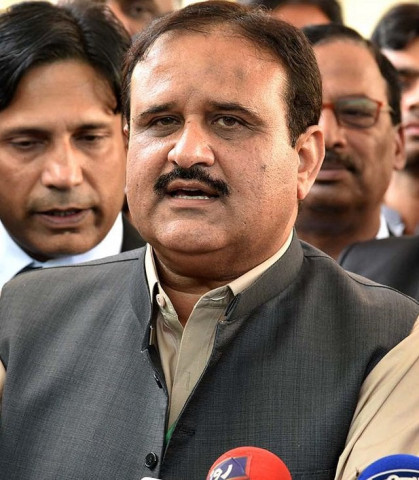Govt to appoint 45,000 headmen to boost revenue
They will also report to local govt and help protect lands from illegal occupants

PHOTO: FILE
Punjab Chief Minister Sardar Usman Buzdar has already given a go-ahead for activation of this traditional headman system in rural areas of the province. The government will appoint around 45,000 numberdars (headmen) who will perform various important functions on behalf of the government to increase revenue collection and maintain law and order in their respective areas.
These numberdars will report to the local government about encroachments and help protect state lands from illegal occupants. They will also help the government to keep a vigilant eye over leakage of revenues and outbreak of any epidemic in their respective areas. It would be their responsibility to inform the competent authority about epidemics or outbreak of any disease in their villages.
The government believed that this time-tested system of numberdari can play a vital role in improving revenue collection and governance in the rural settings. Initially, the government had decided to award them some 14 government’s function on behalf of different government departments in their jurisdiction.
Earlier, Pakistan Muslim League’s former Punjab Minister for Revenue Gul Hameed Khan Rokhri had attempted to reactivate the system for similar objectives in 2006. He also announced the incentives to be given to headmen to make this decades-old system more effective and efficient. He indicated that the government would temporarily award 12.5 acres of state land to each headman on lease for cultivation in colony districts which would be revoked after his death or in case of his removal from the post and would be given to the new incumbent.
The numberdari system in Pakistan is based on the pre-partition Indian land revenue system. After the 1947, both nations have made changes to the land revenue acts, leading to some differences in the practice and implementation, though the basic concept remains the same.
The title numberdar is used in the Indian subcontinent which applies to influential families of landlord (zamindar) of the village revenue estate. It is hereditary status and has wide-ranging governmental powers, mainly revenue collection and a share in it. It is all done in collaboration with the police to maintain law and order in the village. In rural areas some influential people still enjoy privileges by using this title but for practical purposes the numberdari system has become defunct over a period of time.
In the Punjab Land Revenue Act, 1967 has defined the role and responsibilities of headmen in revenue collection. It highlights that the headman is empowered to deposit certain sums other than rent. – (1) In either of the following cases, namely: (a) when a headman or other land-owner to whom any sum other than rent is payable on account of liability under this Act, refuses to receive the sum from, or to grant a receipt therefor to, the person by whom it is payable; or (b) when the person by whom any such sum is payable is in doubt as to the headman or other land owner entitled to receive it, that person may apply to a revenue officer for leave to deposit the sum in his office, and the revenue officer shall receive the deposit if, after examining the applicant, he is satisfied that there is sufficient ground for the application, and if the applicant pays the fee, if any, which may be chargeable on any notice to be issued of the receipt thereof. (2) When a deposit has been so received, the liability of the depositor to the headman or other land owner, for the amount thereof shall be discharged.
Published in The Express Tribune, January 13th, 2020.



















COMMENTS
Comments are moderated and generally will be posted if they are on-topic and not abusive.
For more information, please see our Comments FAQ